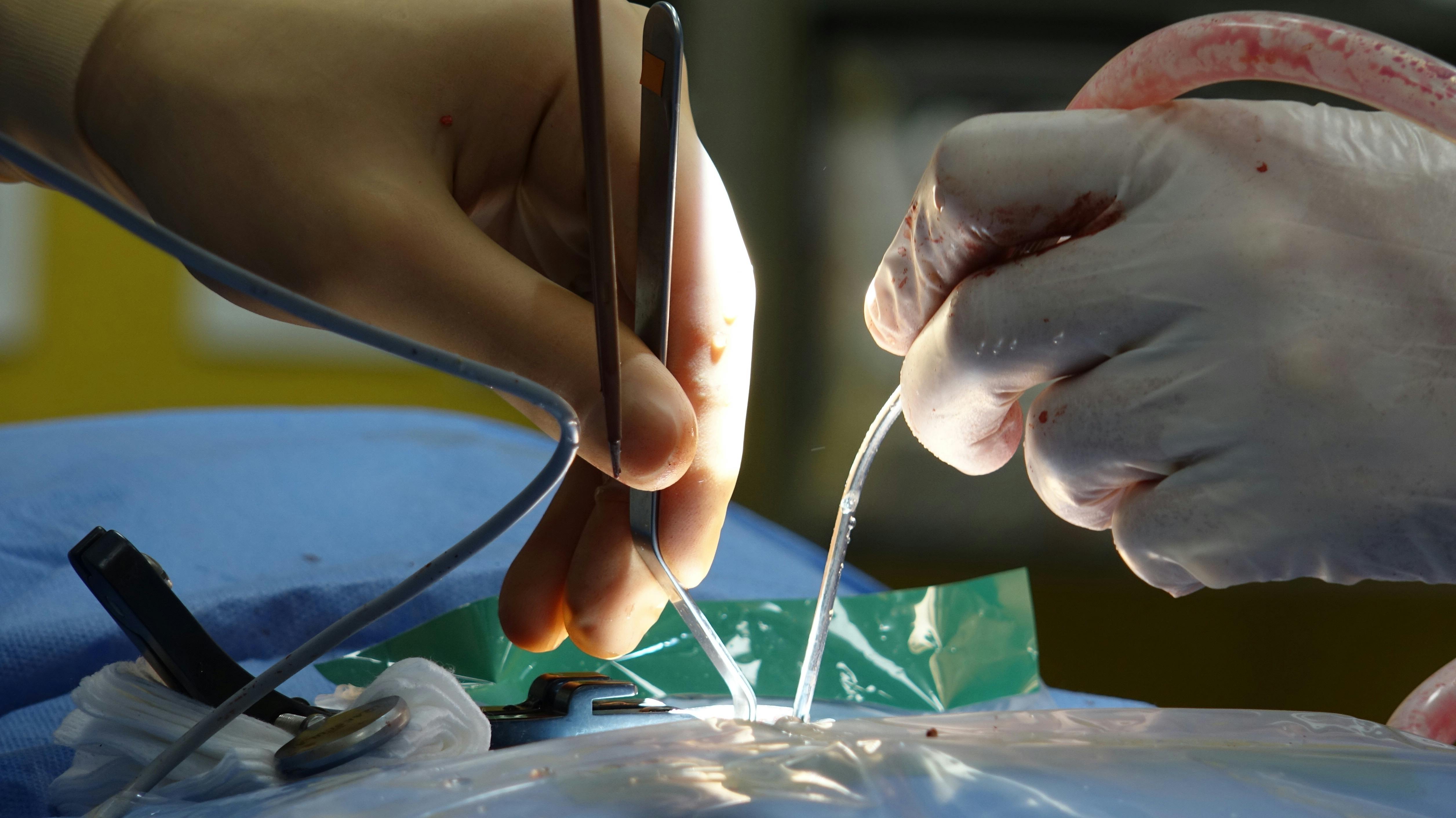Brain surgery encompasses the medical interventions performed on the most complex and vital organ of the human body—the brain—and the nervous system. This field is crucial not only for addressing life-threatening conditions but also for maintaining a wide range of human functions, from motor skills to cognitive processes. A brain surgeon aims to improve patients' quality of life by utilizing the most advanced technologies and methods offered by modern medicine. Representing one of the strong links between science and human life, brain surgery plays a critical role in the diagnosis and treatment of nervous system disorders. In this article written by Prof. Dr. Özgür Taşkapılıoğlu, you can gain detailed information about brain surgery.
What is Brain Surgery?
Brain surgery is a medical specialty concerned with the diagnosis, treatment, and management of nervous system disorders. The nervous system, consisting of the brain, spinal cord, and peripheral nerves, forms a complex network that regulates bodily functions. Brain surgeons treat disorders affecting this system using surgical methods.
A brain surgeon not only excels in surgical techniques but also possesses deep knowledge of the physiological and anatomical aspects of neurological diseases. The conditions treated are typically life-threatening or may lead to significant functional losses.

Which Conditions Does Brain Surgery Treat?
The range of diseases addressed by brain surgery is quite broad, and many conditions are evaluated within this specialty, including the following:
1. Brain Tumors
Tumors that develop in the brain or spinal cord can be either benign or malignant. Brain surgeons perform surgical interventions to remove the tumor or halt its growth.
2. Aneurysms and Vascular Diseases
Aneurysms (ballooning) in the brain's blood vessels can lead to bleeding and pose a life-threatening risk. Surgeons use clip placement or endovascular techniques to correct these conditions.
3. Traumatic Brain Injuries
Head traumas resulting from accidents, such as hematomas (blood accumulation) and skull fractures, may require urgent surgical intervention.
4. Spinal Disorders
Conditions such as disc herniation, spinal tumors, or spinal cord compression also fall within the scope of brain surgery.
5. Epilepsy and Other Neurological Disorders
In cases of refractory epilepsy, surgical interventions may involve removing the area of the brain that triggers seizures or implanting neurostimulators.
6. Parkinson's Disease and Movement Disorders
In advanced stages of Parkinson's disease, surgical techniques such as deep brain stimulation (DBS) can be applied.
7. Congenital Anomalies
Congenital nervous system disorders, such as spina bifida, may also require surgical intervention.
8. Hydrocephalus
An excessive accumulation of cerebrospinal fluid in the brain can be treated by placing a shunt.
Applications of Brain Surgery
1. Microsurgical Techniques
These surgeries, performed with the aid of a microscope, are used in delicate interventions such as tumor removal and treatment of vascular diseases.
2. Endoscopic Surgery
Endoscopic surgery, a minimally invasive method, is preferred particularly in the treatment of pituitary tumors and hydrocephalus.
3. Robotic Surgery
Robotic systems allow surgeons to perform more precise and controlled interventions.
4. Neuromodulation
This method utilizes electrical stimulation in the treatment of neurological disorders such as epilepsy and Parkinson's disease.
What is the Process of Brain Surgery?
The practice of brain surgery involves a multi-stage process:
1. Diagnosis and Planning
Surgeons first gather detailed information about the patient's condition. Imaging techniques such as MRI, CT scans, and angiography are used for diagnosis and surgical planning.
2. Surgical Intervention
During the surgical procedure, high-precision technologies are employed to avoid damage to the brain tissue. The duration and technique of the surgery vary depending on the type of condition.
3. Postoperative Care
After surgery, patients are monitored in the intensive care unit. The rehabilitation process plays a critical role in the patient's recovery.
Which Technologies Are Used in Brain Surgery?
Modern medicine offers many technological innovations that enhance the effectiveness of brain surgery:
• Intraoperative Imaging: Provides real-time imaging during surgery.
• Neuronavigation: Enables safe surgical interventions in sensitive areas of the brain.
• Gamma Knife and CyberKnife: Non-surgical treatment methods using radiation therapy.
The Importance of Brain Surgery
Brain surgery is an indispensable field for enhancing quality of life and, at times, saving lives. This specialty not only treats diseases but also drives scientific research.
The capabilities provided by brain surgery herald an era in which more diseases can be treated in the future. Advances in genetic engineering, artificial intelligence, and neurotechnology further propel this field forward.
Brain surgery is one of the most challenging yet rewarding fields in medicine. This specialty not only battles life-threatening conditions but also deepens our admiration for the intricate structure and functions of the human brain. Brain surgeons stand out not only for their surgical skills but also for their commitment to providing hope and a better quality of life for their patients. Brain Surgeon Özgür Taşkapılıoğlu, serving in Bursa, wishes you healthy days.